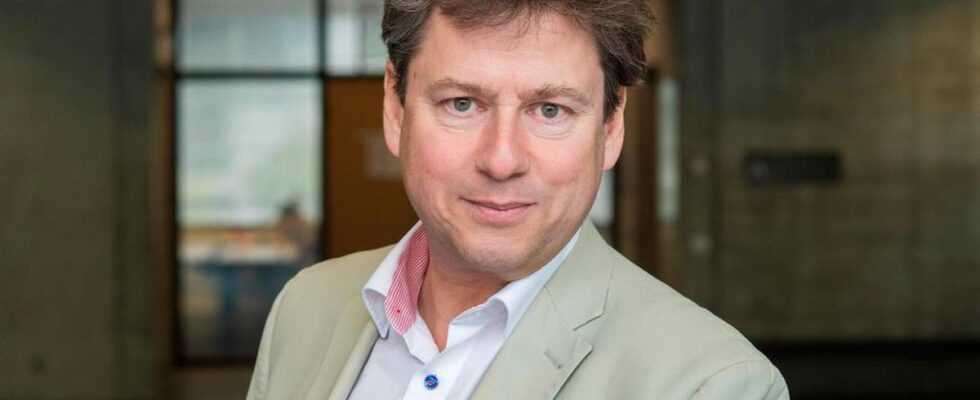Published
The booster protects very effectively against hospitalizations. For economist Reiner Eichenberger, it is clear: If everyone who wants is boosted, the measures must fall. An infectiologist disagrees.
- from
- Daniel Graf
- Christina Pirskanen
BAG figures show: those who have been boosted hardly have to fear being hospitalized because of Covid disease.
Economist Reiner Eichenberger calls for the measures to be lifted at the latest when everyone who wants has received their booster.
Infectiologist Jan Fehr sees it differently: If the measures were lifted now, a large number of people would quickly become ill, which not only affects the health system.
Current figures from the Federal Office of Public Health now show how well the booster protects against hospitalization: By January 10, the FOPH recorded a total of 451 hospitalizations despite three vaccinations. Only eleven people who had no previous illness ended up in hospital after being vaccinated three times.
For the economist Reiner Eichenberger it is clear: “At the latest when everyone who wants to receive their booster and thus have very good protection against hospitalization, the measures must be lifted.” Even now there is hardly any justification for the measures: “We can see that Omikron is going milder. We now also know that, with a certain financial incentive, we could expand the intensive care beds in an emergency. The infection is already massively advanced and we are also making great strides in the development of drugs. ”
Eichenberger also addresses the development of the variants: “According to the BAG’s dashboard, Delta has increased again since December 23 and in some cases pushed Omikron back again. Nevertheless, there was no increase in the number of Covid patients in the hospitals. It seems that the delta variant is also weakening because it can no longer find sufficient hosts without immunization. ” All of these factors are clear signs for Eichenberger that a lifting of the measures will soon be justifiable.
«Have to hope for a favorable scenario»
Rudolf Minsch, chief economist at Economiesuisse, also says: “As soon as the risk of overburdening the hospitals can be ruled out, all measures must be taken.” At the moment, however, nobody knows when this will be the case. “It is very good news that the booster vaccinations protect so well against hospitalization. We still have to be careful, but the signs indicate that the serious illnesses and hospitalizations will not increase too much despite the many cases. “
But Minsch also says: “This pandemic taught us that we always have to expect surprises. Those responsible in the task force and in the FOPH expect different scenarios. We have to work with all available information and hope that the favorable scenario occurs. ” What Economiesuisse is doing is putting the existing figures in the right light. “For example, we clearly called for a shortening of quarantine and isolation when the scientific data showed that this is possible.”
Jan Fehr, Professor and Head of the Department of Global & Public Health at the University of Zurich, urges caution: “Omikron has created a new starting point. We don’t need a lockdown now, nor can we just remove everything, ”he says (see below).
For Jan Fehr it is clear: “Taking all measures now would be a mistake.” It is clear that a large part of the population will come into contact with Omikron. «That can hardly be prevented. The question is how quickly and how well protected each person is in this situation. ». According to Fehr, a lockdown is currently not the way out of the crisis because it only delays the inevitable. “But we can’t open everything either, because then a lot of people would get sick very quickly. We must not forget that a certain proportion of the population is still not vaccinated and those who are vaccinated and boosted are not 100 percent protected against infection. ” That would not only pose a threat to the healthcare system, but also to the entire infrastructure: “Whether chauffeurs, salespeople or mail carriers: we can all still get sick, but we have to avoid many people getting sick all at once, so that those who are seriously ill do well can be supplied; and not too many should be absent at the same time due to illness. ” According to Fehr, the decisive factor at the moment is to achieve a braking effect. He advocates taking the middle ground: “A lockdown won’t get us any further, but on the other hand it’s not the time for major events, because these involve an incalculable risk. We have to find our way somewhere between these extremes. ”
As a member, you become part of the 20-minute community and benefit from great benefits and exclusive competitions every day!


